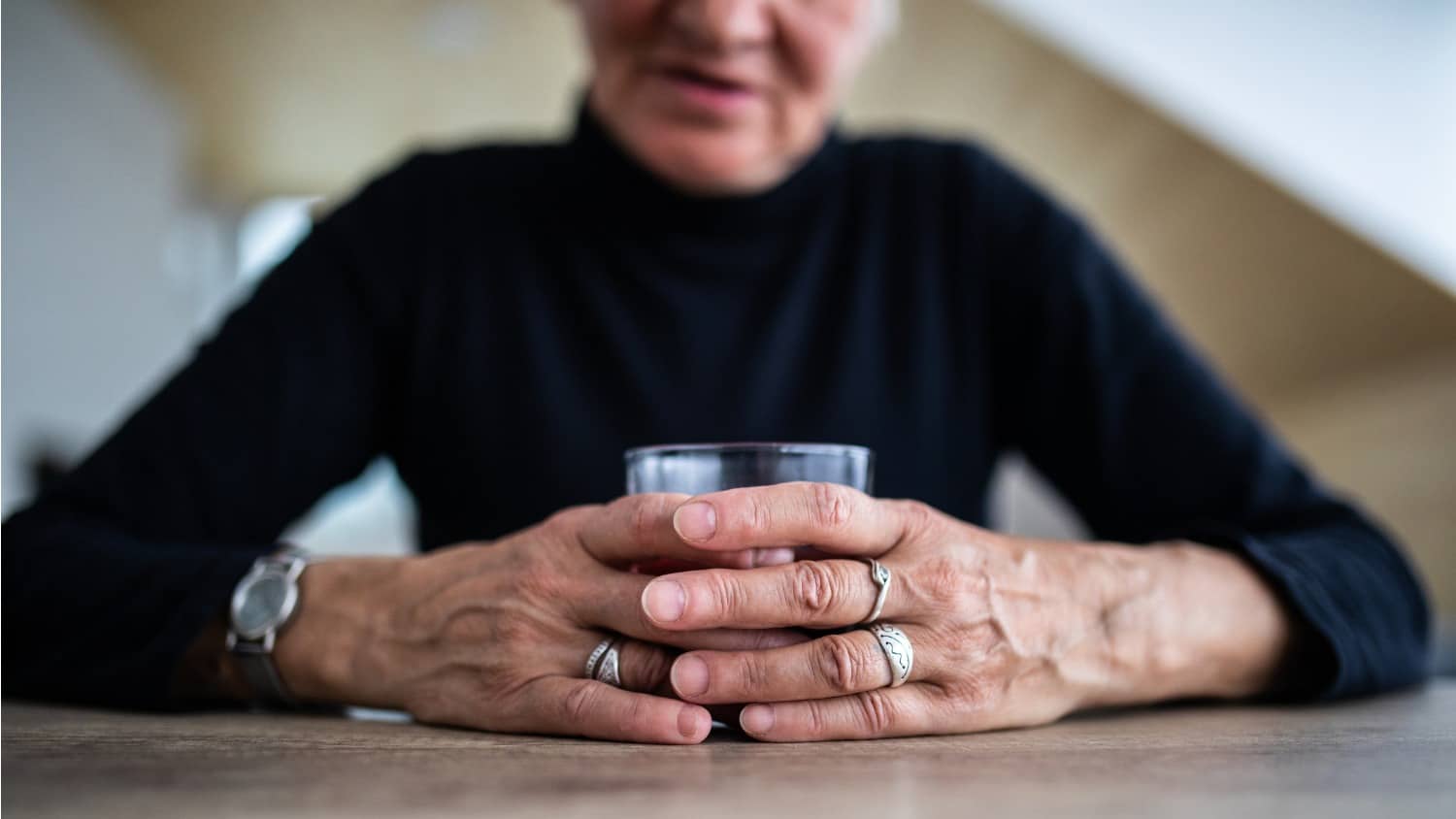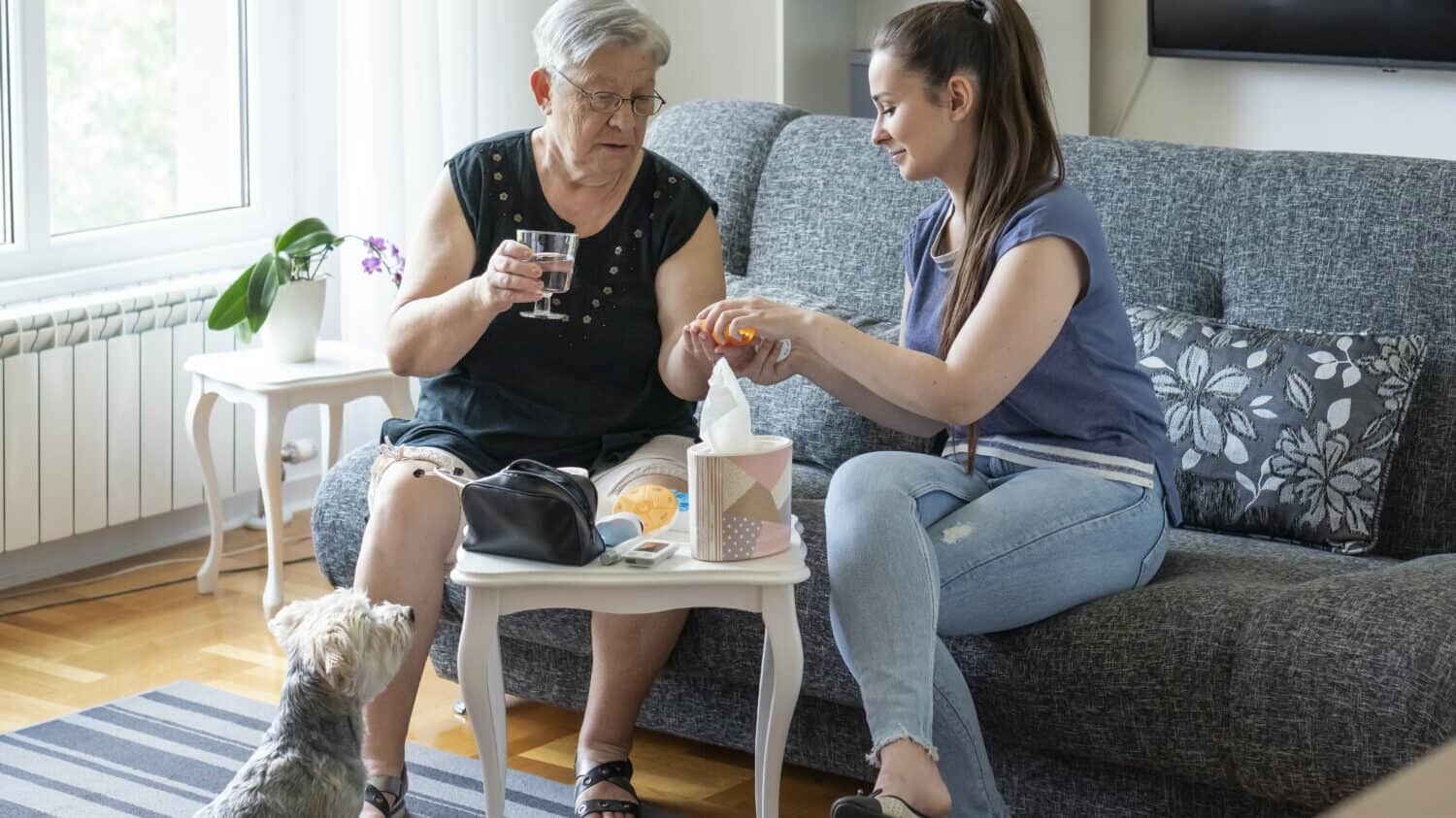
The Rise in Addiction Amongst Seniors During the Pandemic
For months now social distancing, sheltering in place and my personal post-it checklist of Covid Rules To Live By continues to challenge every aspect of what feels like a somewhat surreal sanitary existence (for this author, at least).
Of far greater significance than my current state of mind is the condition influencing almost everyone on the planet i.e., the ramifications of social isolation on mental health concerns, domestic violence, opioids and alcohol.
The CDC (Centers for Disease Control) agrees. According to them social isolation exacerbates symptoms of anxiety and depressive disorder leading to the rise in substance use and abuse. Obviously, there is also an unending list of social causes apart from pure social isolation creating the same symptoms. Some of these include job loss, families squished together in small quarters getting on one another’s nerves, kids having to stay home, unpaid caregivers, living with elderly parents (the list is never ending).
All of this leads me to the conclusion that social isolation, stay at home orders (and everything else apparently falling apart for so many of us) supports that old expression “being with you is driving me to drink”. No matter what the reason: job loss or not, elderly parents or not, being old yourself or not – there is clearly a lot more drinking going on and the reason why I chose to write a bit about this as it relates to older adults, in particular.
Current Substance Use – Adults over 50
Pre Covid (way back in 2002) the National Library of Medicine projected substance use disorders for US adults over 50 years of age to reach 5.7 million by 2020. This prediction was focused on both alcohol and illicit drug dependence or abuse. Ends up – their prediction was off by more than 3 million.
We are now more than half way through 2020.There are 47 million Americans over 65 and 17 percent have substance use disorders. That’s 8 million.
Attempting to accurately predict much of anything right now is kind of pointless because we are in the middle and do not know if it will end, when it will end, nor have a clue about the predicted PTSD after effects. What we do know, however, is that liquor stores and on demand liquor delivery is flourishing.
Three months into the pandemic the combined rise in sales of spirits, beer and wine was 75% higher than that same time period the previous year.
Drizly.com, the leader in online alcohol sales and delivery, raised $50M this past August claiming a 350% increase in pandemic sales over the previous year. Their by-line says it all “Let The Drinks Come To You”.
On Sept 29, 2020 the very first published professional study measuring alcohol consumption during this specific pandemic concluded that adults living in the US (ages 30-59) are drinking 19 percent more than normal.
Obviously, the substance abuse epidemic is not limited to the USA. I just happen to live here so that is why I am a bit more focused on it.
The British Liver Trust, one of the UK’s main charities dealing with the medical consequences of alcohol abuse, reported a 500% increase in helpline calls during the pandemic lockdown in June.
Interestingly, in Australia, women in their 50s are the only subset of the Australian population with rising rates of alcohol use. I would be willing to bet that the reason for this is because women in this age group are both working and providing care for their children, their parents and even some grandchildren (and don’t forget their husbands).
Let us not forget opiates.
Although the pandemic threatens everyone, it is a particularly grave risk to the millions of older Americans with opioid use disorder, who—already vulnerable and marginalized—are heavily dependent on face-to-face health care delivery.
Globally, healthcare and government officials are reporting alarming spikes in drug overdoses during the coronavirus pandemic. Emerging evidence within the USA suggests that continued isolation, economic devastation and recent disruptions to the drug trade are fueling this surge.
Despite all this alarming news including the increasing rates of illicit and prescription drug misuse among adults older than 65 years, my reason for focusing on Alcohol in this story is because alcohol remains the most commonly used substance among older adults.
The Benefits Of Having Lifelong Depression
I started this article about 3 months into the Pandemic’s social isolation fully convinced that the rise in substance use (specifically alcohol) would be hitting hard on many of us sensitive types over 65. Confident that my research would reveal increased alcohol consumption, drug use (and other addictive behaviors) in this older cohort (and in particular among those with serious depression) you can imagine my surprise at finding out just the opposite.
When it comes to alcohol and other substance use, a large subset of older adults are faring far greater than their younger peers described above. How can that be?
University researchers studied the effects of the pandemic’s social isolation on the mental health of older adults with pre-existing depression in four U.S. metropolitan areas. Contrary to expectations, there was no evidence of increased clinical depression, anxiety, or suicidal thoughts compared to symptoms assessed before the onset of distancing.
Living Without You is Not Causing Me To Drink…So Far, At Least
As revealed through this research, it appears that a lifetime of managing depressive symptoms teaches one how to cope with those feelings the rest of us are currently tackling. Older adults with early onset major depressive disorder may actually be thriving compared to the rest of us. At least those were the findings during the first 2 months of the COVID-19 pandemic in the United States. This was quite a surprise to discover the positive benefits of struggling with “early onset” v “late onset” depression.
I truly hope these positive results continue for many months to come although the more time passes, that hope may be dwindling.
In comparison, not measuring up to our lifelong depressed peers are those of us over 65 experiencing what I call late-onset, garden variety depression.
For the rest of us, the costs of social isolation have been enormous with loneliness as the main culprit, triggering anxiety, depression, and problematic health behaviors including substance use, poorer sleep and overeating. Preliminary surveys suggest that within the first month of COVID-19 loneliness increased by 20 to 30 percent and emotional distress tripled affecting over 47 percent of older adults .
Former U.S. Surgeon General Vivek Murthy likens the negative impact of social isolation on lifespan and health status to smoking 15 cigarettes a day. He describes it as more powerful than the impact of obesity or substance use.
Alcohol Abuse and Older Adults – An Overlooked Epidemic
Substantial evidence suggests that substance use among older adults has been under-identified for decades.
Current National Institute of Health guidelines recommend that adults age 65 and over consume no more than 7 drinks per week and no more than 1drink per day.
Because alcohol-related immune system impairment increases susceptibility to pneumonia and other infectious diseases, minimizing alcohol consumption is critical for older adults during the pandemic.
Additionally because of the many common medical conditions or psychiatric disorders, there may be no safe level of alcohol use. As one example, suicide risk is elevated among older adults with both depression and alcohol use disorders
The Difference Between Addiction and Dependence
The terms “addiction” and “dependence” are often confused. While there is some overlap, it’s important to understand the major differences between the two.
No one expects to develop an addiction to anything when they begin experimenting. However, continued experimentation can lead to addiction before one even realizes.
The last census reported 28 percent of adult Americans living alone. For many of these individuals, this has meant little to no human contact for months. With more social isolation and the increase in drinking, what may innocently start with experimentation eventually slides into dependence leading to substance abuse or addiction. Living alone contributes to making it happen easier and faster.
When we develop a dependence on alcohol and try to stop cold turkey we usually experience withdrawal symptoms. The best plan is to take it slowly and gradually cut down on whatever it is we have been relying on (pain meds, alcohol, sugar or whatever). It will be a lot easier to halt this growing dependency in its tracks before brain chemistry permanently changes as happens with an addiction.
There are also theories re one’s genetics that one can become an addict after one sip of a drink (or even none). However, most addiction professionals think that addiction starts with initial dependency and turns into extensive drug or alcohol use no matter what your genes reveal.
Most often addictions begin with experimentation with a substance. There are many reasons someone might initially try a drug, and your ability to cope with whatever is going on plays a big part. That is probably why during this Pandemic there is so much drinking. Coping has been quite a challenge for all of us.
Relapse
Relapse appears to be rampant right now among older adults due to the lockdown. Additionally, many have found themselves cut off from support because they may be unable to effectively use online treatment and self-help resources. Most significantly, the anxiety and depression compounded by social isolation and economic uncertainty is increasing the risk of relapse for those who have been in recovery.
Addiction Among Adults Over 65
When it comes to older adults, according to the Office of Alcoholism and Substance Abuse Services, there are two very different forms of addiction:
1. The “hardy survivor,” – those who have been abusing substances for many years and have reached 65 and are still using (or may be in and out of recovery)
2. The “late onset” group – those who form addictions later in life usually as a result of a traumatic event or injury
Symptoms of Addiction in Older Adults
Addiction is often much more difficult to recognize with this age group.
These include:
- Memory problems
- Changes in sleeping habits
- Unexplained bruises
- Irritability, sadness, depression
- Unexplained chronic pain
Reasons for Addiction Among Older Adults
Potential triggers or causes for drug or alcohol addiction in the elderly include:
- Retirement
- Death of a family member, spouse, pet or close friend
- Loss of income or financial pressure
- Relocation or placement in a nursing home- a move they did not want
- Trouble sleeping
- Family conflict
- Mental or physical health decline (depression, memory loss, major surgeries.
- An injury leading to prescription drug use
- Changes in eating habits
- Wanting to be alone often
- Failing to bathe or keep clean
- Losing touch with loved ones
- Lack of interest in usual activities
Think a Nursing Home Will Stop This? Think Again
The requirement of social isolation has largely cut off everyday support systems of family, caregivers, groups and friends. Older adults residing in Nursing Homes or Assisted Living are experiencing unimaginable suffering.
In the best of times, nearly 50 percent of nursing home residents have alcohol-related problems. The percentage is even greater in Assisted Living Residences where alcohol flows freely during dinner or happy hours.
Do not be fooled into thinking that your loved one is safe from substance abuse.
When there is a will to drink, there is a way. That “way” definitely exists in many Senior Living Residences where residents on prescription meds attend happy hours with wine flowing for all.
Just ask Ms Peggy Franklin who believes the problem in senior residences exists partially because “families don’t want to recognize it and therefore minimize the behavior because they may think that someone that age has little else from which to derive pleasure“.
Ms Franklin’s company 3rd Act Substance Abuse Solutions supports “the tremendous opportunity for senior service providers to bring attention to this under- publicized issue through education, advocacy, programs and other services that create awareness and attack the stigma that prevents so many struggling older adults from getting the help they need”. Hoping to enlighten and educate, she claims to be filling a much-needed gap by providing innovative solutions and educational programs within senior living to staff, residents and family. Let’s hope she is hugely successful!
How to Approach An Older Adult About Their Drinking
If you suspect your loved one has a drinking or drug problem, read this article first. If you approach them initially they might get defensive or deny it. Or, they may have been waiting for someone to notice, too scared to reach out for help on their own.
If your loved one argues, speak to their primary care physician. A doctor can help with safe detoxification from strong pain medications or recommend a course of action for alcoholism, such as counseling or a twelve-step program.
In Conclusion
At this time of writing we are 7 months in and this is still being described as a new and rapidly evolving global crisis. There is currently very little known about its broader impact on mental health but the recent research points to one of the worst mental health crises the world has ever faced.
Am I concerned about the global mental health trauma yet to come? Yes I sure am.
RESOURCES
- Alcohol Abuse Amongst The Elderly: A Complete Guide
- Finding Assisted Living for someone with Addiction
- Online AA Meetings in English
- Online 12 Step Forums)
- International Doctors in Alcohol Anonymous
- Narcotics Anonymous Recovery
- Healing From Addiction With A Buddhist Practice
- Pandemic Recovery Support and Self Management






